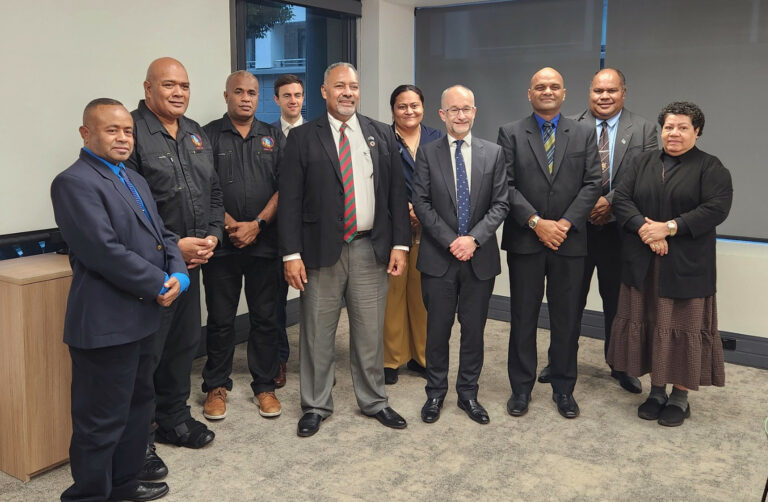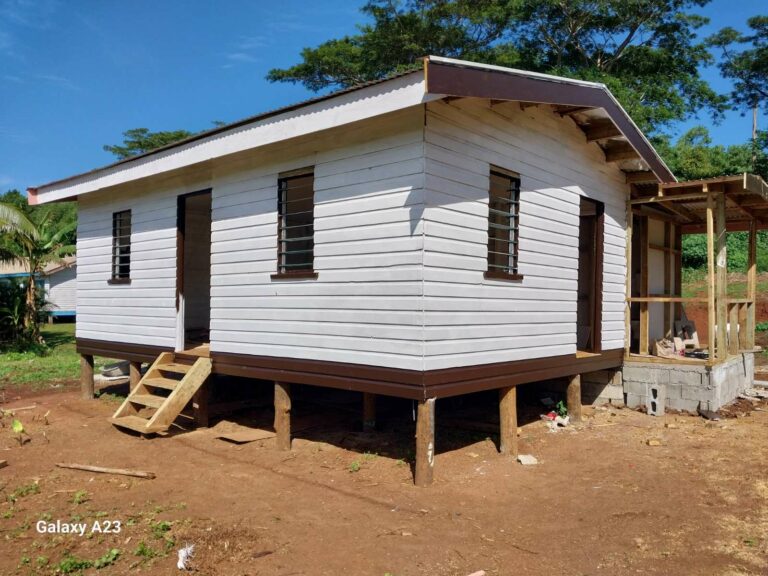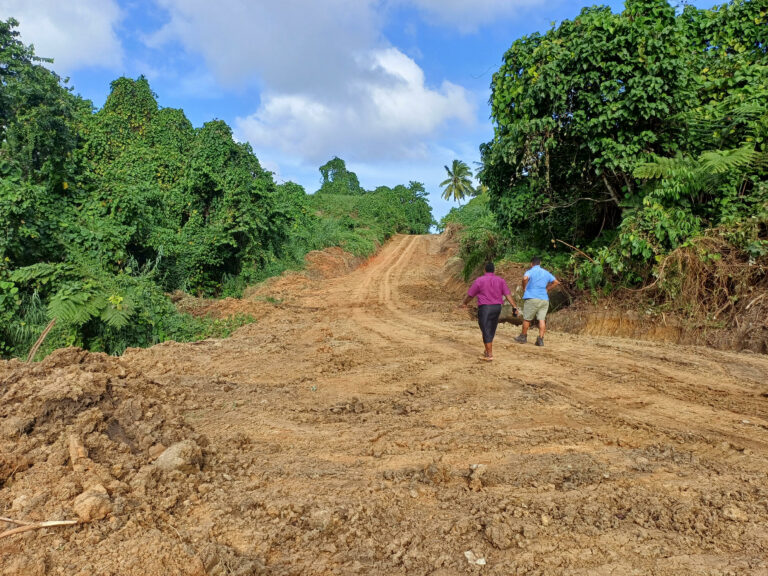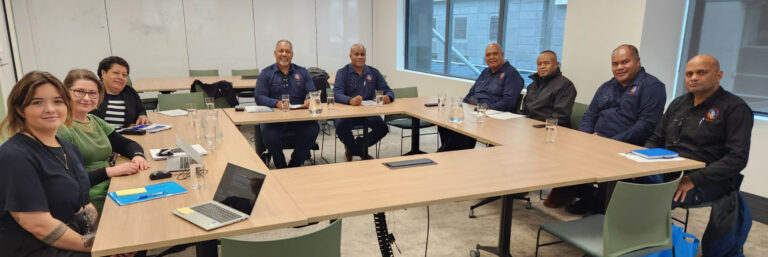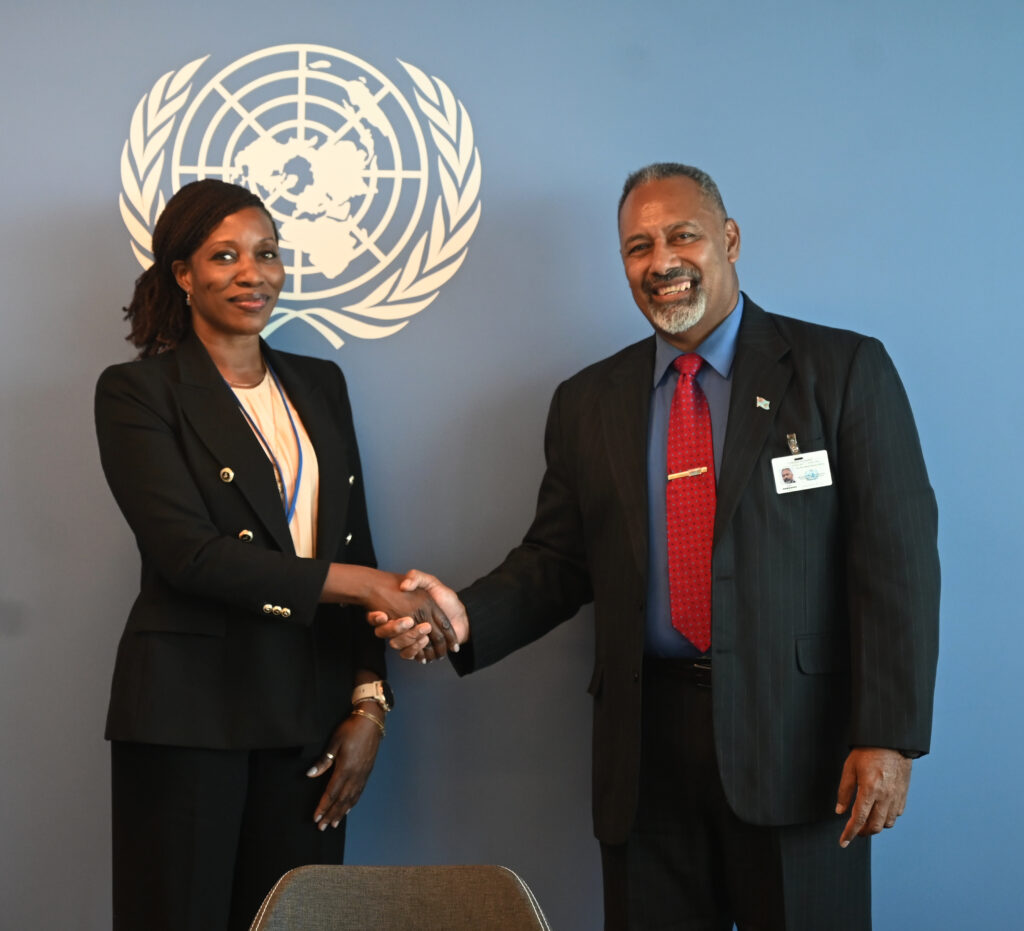
Caption: Minister for Rural and Maritime Development and Disaster Management Hon. Sakiasi Ditoka following a meeting with the United Nations Office for the Coordination of Humanitarian Affairs (UNOCHA) Director of the Operations and Advocacy Division Ms. Edem Wosornu held on the margins at the High Level Meeting for the Mid-Term Review of the Sendai Framework for Disaster Risk Reduction.
NEW YORK – Fiji will pilot the Anticipatory Humanitarian Action Central Emergency Response Fund (CERF) with an approved funding of FJD$2million.
This was relayed to the Fiji Government during a high-level discussion on the Sendai Mid-Term Review, between the Minister for Rural and Maritime Development Hon. Sakiasi Ditoka and a team from the United Nations Office for the Coordination of Humanitarian Affairs (UNOCHA) led by its Director of the Operations and Advocacy Division Ms. Edem Wosornu.
In his remarks during the meeting, Hon. Ditoka welcomed the announcement, recognising its potential to enhance the Fiji Cluster System.
“By contextualising the UN System and providing funding as part of the country’s disaster preparedness efforts, strategic measures can be put in place to build resilience at the community level,” stated Hon. Ditoka.
In addition to the fruitful discussion, UNOCHA also pledged its support by providing two United Nations Disaster Assessment (UNDAC) experts to assist the National Emergency Response Team (NERT) training.
UNOCHA also expressed its commitment to supporting a proposed Civil and Military Training, which will be conducted alongside the national simulation exercise scheduled for October this year.
Hon. Ditoka also expressed his gratitude to UNOCHA for its ongoing support in enhancing the skills of our first responders and for collaborating with government mechanisms to strengthen disaster response.
The piloting of the Anticipatory Humanitarian Action CERF in Fiji marks a significant milestone in bolstering the country’s disaster management capabilities and ensuring timely and effective response to emergencies.
Meanwhile, anticipatory action involves taking proactive measures before predicted hazards fully unfold to prevent or reduce humanitarian impacts. It is based on pre-agreed activities, triggers, and decision-making rules to ensure the swift release of pre-arranged financing. By utilising early warning systems and scientific advancements in disaster prediction, anticipatory action maximises the opportunity to intervene and prevent or mitigate imminent humanitarian impacts. This approach emphasises linking humanitarian action to risk and vulnerability, rather than solely focusing on needs and suffering.

Caption: Minister for Rural and Maritime Development and Disaster Management Hon. Sakiasi Ditoka and members of the Fiji Government delegation following a meeting with the United Nations Office for the Coordination of Humanitarian Affairs (UNOCHA) team led by its Director of the Operations and Advocacy Division Ms. Edem Wosornu.
-ENDS-
The Ministry of Rural and Maritime Development and Disaster Management is responsible for implementing development strategies that bring Fijians living in rural and maritime regions the same level of access to essential services and economic opportunities as anywhere else in the country. We coordinate and implement the Fiji Government’s rural and maritime development initiatives with a mission to empower Fiji’s rural sector. We also spearhead disaster risk reduction initiatives at national and sub-national level including disaster preparedness, response, and recovery. We have offices for each of Fiji’s 14 provinces including Rotuma, leading the Fiji Government’s rural development and disaster risk management operations.
Follow us on Twitter @MRMDFiji @FijiNDMO| Facebook: @developmentfiji
For press enquiries: Aqela Susu, MRMDDM, Tel. +679 3216456/+679 9985670,
Email: aqela.susu@govnet.gov.fj/susuaqela@gmail.com


